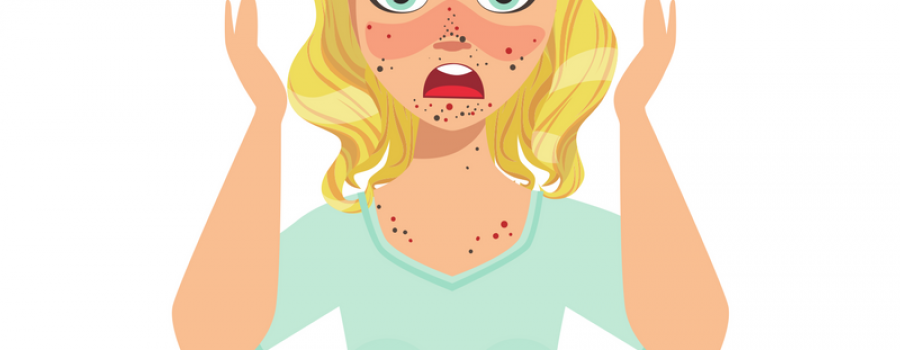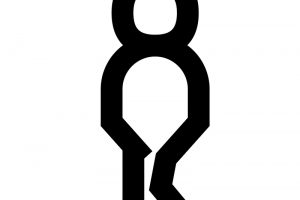Living with PCOS: my story
If you are like me, you may be experiencing trouble losing weight, infertility, depression, irregular periods and acne… like the big deep giant red zits cropping up on your face, specifically around the jaw line. Yeah, those are all symptoms of Polycystic Ovarian Syndrome (“ PCOS”). PCOS is the most common hormonal disorder in women of childbearing age, and for those diagnosed with it, likely one of the most frustrating as well.
I found out I had PCOS 10 years ago when we were trying to get pregnant with our first. It was frustrating and after 8 months of trying I headed to my doc. I had always had irregular periods and bad acne since I was 15. I grew up a chubby kid always easily gaining weight. In later years, I was on the pill which helped but when trying to conceive, the issue became more concerning. Okay, like A LOT concerning. We finally were able to conceive two kiddos (yay) after taking some natural treatment actions but I still struggle with major acne at 36 years old. But there is hope! Read on.
What exactly is PCOS?
PCOS is a condition that produces small cysts on the ovaries, which negatively impact hormone production.
Through luteinizing and follicle stimulating hormones (LH and FSH), our pituitary glands tell the ovaries to release estrogen and progesterone. PCOS creates a disruption in this communication pathway, which often results in sporadic ovulation or failure to ovulate at all. It is for this reason that many women with PCOS have irregular or absent periods or struggle with infertility.
But it doesn’t end there.
Insulin, while frequently associated with diabetes, is also a major component of PCOS. Women with PCOS often experience insulin resistance, making them high risk for developing diabetes or heart disease. But just what is insulin exactly? Let me explain.
PCOS makes it harder to lose weight
The science behind insulin in somewhat understandable terms
Insulin’s role in your body is to maintain blood sugar levels by acting as a moderator of glucose (glucose is formed when your body breaks down the carbohydrates you eat). Insulin may tell your body to immediately use this glucose for energy or, if your activity level is low, tell your body to store it for later use.
Insulin resistance occurs when the body ignores the signals from insulin to use or store glucose, instead allowing glucose to build up in the blood stream. Recognizing the high levels of sugar in the blood, the body releases even more insulin in an effort to bring those levels down. This results in even higher levels of insulin floating around the body, which has a whole host of negative consequences on a person’s overall well-being.
Our bodies have amazing back-up systems, so if it’s unable to convert glucose into energy or store it in the cells, it will instead convert and store it as fat. This is why insulin resistance can cause weight gain or an inability to lose weight. To make matters worse, since the cells aren’t getting the glucose they need, people with insulin resistance often experience significant exhaustion or lack of energy.
As if that’s not bad enough, insulin also plays a role in testosterone production. While normal ovaries make small amounts of testosterone, ovaries afflicted with PCOS often create more testosterone than necessary thanks to increased insulin levels. Increased testosterone in women can result in acne or abnormal hair growth on the face or body.
The National Institutes of Health estimate that approximately 5-10% of women have PCOS. While its origins are not fully understood, studies have indicated that PCOS is related to the genes you receive from your mother or father. In other words, a woman with PCOS is born with PCOS. However, in most cases its symptoms do not come to fruition until after puberty, and the severity of symptoms varies for everyone.
How do I know if I have PCOS?
While this condition is still being fully defined, there are certain symptoms that can indicate you may have PCOS:
- Irregular or missed periods
- Acne
- Excessive hair growth on the body and face
- Weight gain or an inability to lose weight
- Infertility
- Depression
If you are experiencing these symptoms but aren’t sure why, see your doctor. Keep a journal of your periods (or lack of) and list the symptoms you are experiencing. Your doctor will likely utilize a blood test to check your hormone levels, blood sugar, and cholesterol. In some cases, you may also receive an ultrasound to determine if cysts are present on your ovaries.
Can PCOS be cured?
Unfortunately, PCOS has no known cure, though it can be managed effectively without medication in many cases. Diet and exercise are the primary treatment options. Here is what you can do:
1) Low sugar diet. Because many of the effects of PCOS are caused or exacerbated by the excessive release of insulin, maintaining low blood sugar levels is essential. This means limiting foods high in simple sugars, which are metabolized quickly leading to insulin spikes. Examples of simple sugars are anything whose main ingredient is flour (bread, cookies, cake, pasta, etc), fruits, lactose, and carbohydrate-dense vegetables (potatoes, carrots).
2) Frequent small meals. Eating several smaller meals more frequently throughout the day and ensuring those meals have a balance of protein, fats, and complex carbs is another way to maintain blood sugar levels.
3) Exercise. Life in general is better with exercise, and for women with PCOS this is no different. Exercise can help lower body fat, increase energy, and improve overall mood. Strength training in particular has shown to improve insulin sensitivity and is highly recommended for someone living with PCOS.
4) Medications. If PCOS is not effectively managed through diet and exercise alone, a doctor may try birth control pills to help with hormone regulation or prescribe Metformin, a drug designed to control blood sugar levels.
For me, right now, my biggest issue is acne. My dermatologist has prescribed me spironolactone, 50mg 2x per day. Spironolacone is a blood pressure med that blocks adrogen receptors which causes hormonal acne. Now, I already have a blood pressure on the low normal end and I try to avoid taking it right before strenuous exercises like heavy lifting as it makes me dizzy after 350 pound hip thrusters.
I see a lot of questions circulating around concerns in the bodybuilding world about spironolactone decreasing testosterone levels which could hinder muscle building. IMO, if your testosterone was at a higher level to begin with, taking spironolactone to decrease androgen uptake won’t greatly affect muscle gain. The medication isn’t blocking testosterone completely and per dexa scans, I have made great muscle gains even having taken this medication.
Also note that spironolactone is a diuretic and banned at natural bodybuilding shows 8 weeks out. Check with the federation well ahead of time so you can prepare. See Federations Explained for more info.
When it came to fertility years ago, my diet and exercise were already on par but what I did try was acupuncture and it seemingly worked like a charm. I was pregnant after two treatments. I am a big believer in acupuncture as 3 months of treatment nearly cured my SEVERE seasonal allergies. I mean they were severe and are now nearly nothing…6 years running so far. boom.
Steps you can take if you think you have PCOS
If you fear you may have PCOS, make an appointment with your doctor. He or she can help determine if you have PCOS and provide a treatment plan. That plan will undoubtedly include a prescription for diet and exercise. If you are new to the world of fitness I’m happy to help! You can download my free workout plan here or check out my posted workouts here. You can also print out my seven day meal plan to help you get started.
If you’re looking for a group to support your journey to health, I encourage you to join my GF2 Fitness and Contest Prep Forum on Facebook. We have lots of members living with PCOS.
If individual interactions are more your thing, feel free to contact me directly. PCOS may feel like a mountain, but even mountains can be overcome. And I’m here to help you do it.









2 Comments
Leave your reply.